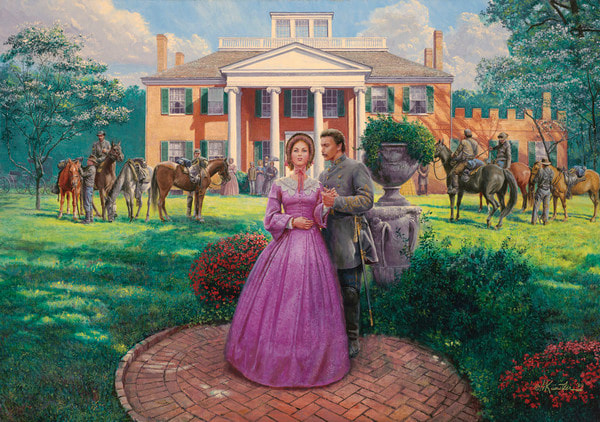|
Northern Capt. John William DeForest of Connecticut was employed in the postwar as an officer in the Freedmen’s Bureau at Greenville, South Carolina. A man fully unsuited to his task and condescending to his charges, he referred to his district as “his satrapy” and fully-acknowledged his “native infamy as a Yankee” among South Carolinians who understandably despised he and his government. Nonetheless, he did recognize those at the top of the South’s social scale — “chivalrous Southrons.” He knew that this aristocracy – not unlike this own aristocracy in Connecticut – enjoyed the advantages of tradition and breeding. He appreciated their sense of noblesse oblige, consideration of others, grace of bearing, genuine courtesy, and personal courage. And he did not miss the hot tempers which he termed “pugnacity,” and emphasis on virility. A Triton Among Minnows “Southern chivalry, you see, Madame,” said Mr. Calhoun Burden of Greenville, South Carolina to the wife of a United States surgeon. Mr. Burden, a stoutish, middle-aged gentleman, richly flavored with Durham tobacco and Pickens whiskey, and as proud of himself in his suit of homespun as if it were broadcloth, had called in a reconstructing spirit on the Yankee family and in the course of conversation had found it desirable to put a question to the colored servant-girl. Making a solemn bow to the mistress of the house, he said, “With your permission, Madame”; then added, in an impressive parenthesis, “Southern chivalry, you see, Madame”; then delivered his query. That no such delicate behavior was known among the Vandals north of Mason and Dixon’s line; that it could not easily be matched in Europe except among the loftiest nobility; that it was especially and eminently Southern chivalry – such was the faith of Mr. Calhoun Burden. It was a grotesque and yet not a very exaggerated exhibition of the ancient sectional and personal pride of the Southerner. He never forgot that he represented a high-type of humanity and that it was his duty not to let that type suffer by his representation. In the company of Yankees and foreigners he always bore in mind that he was a triton among minnows, and he endeavored to so carry himself as that the minnows should take note of the superiority of the triton character. In men of native intelligence and high breeding this self-respect produces a very pleasing manner, an ease which is not assumption, a dignity which is not hauteur, consideration for the vanity of others, grace of bearing, and fluency of speech.” (A Union Officer in the Reconstruction, J. Croushore/David Potter, Archon Books, 1968, pp. 173-174) This was previously published on www.Circa1865.org The Great American Political Divide by Bernhard Thuersam.
1 Comment
|
AuthorBernard Theursam is an architect from Wilmington, North Carolina. Though he was born in New York, there is no better Southerner anywhere. He frequently shares with others gems from his immense library of materials about good Confederates and bad Yankees. Archives |
Proudly powered by Weebly

